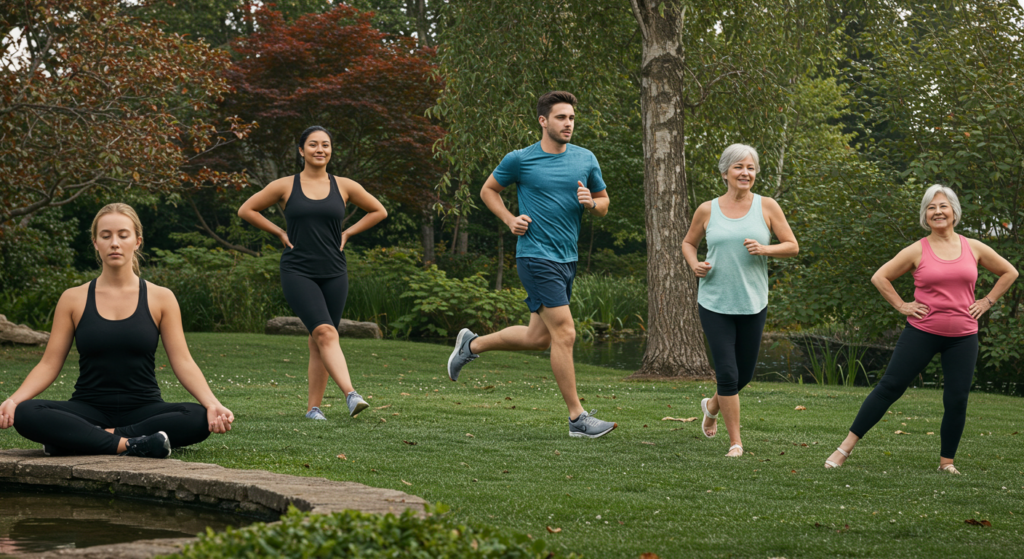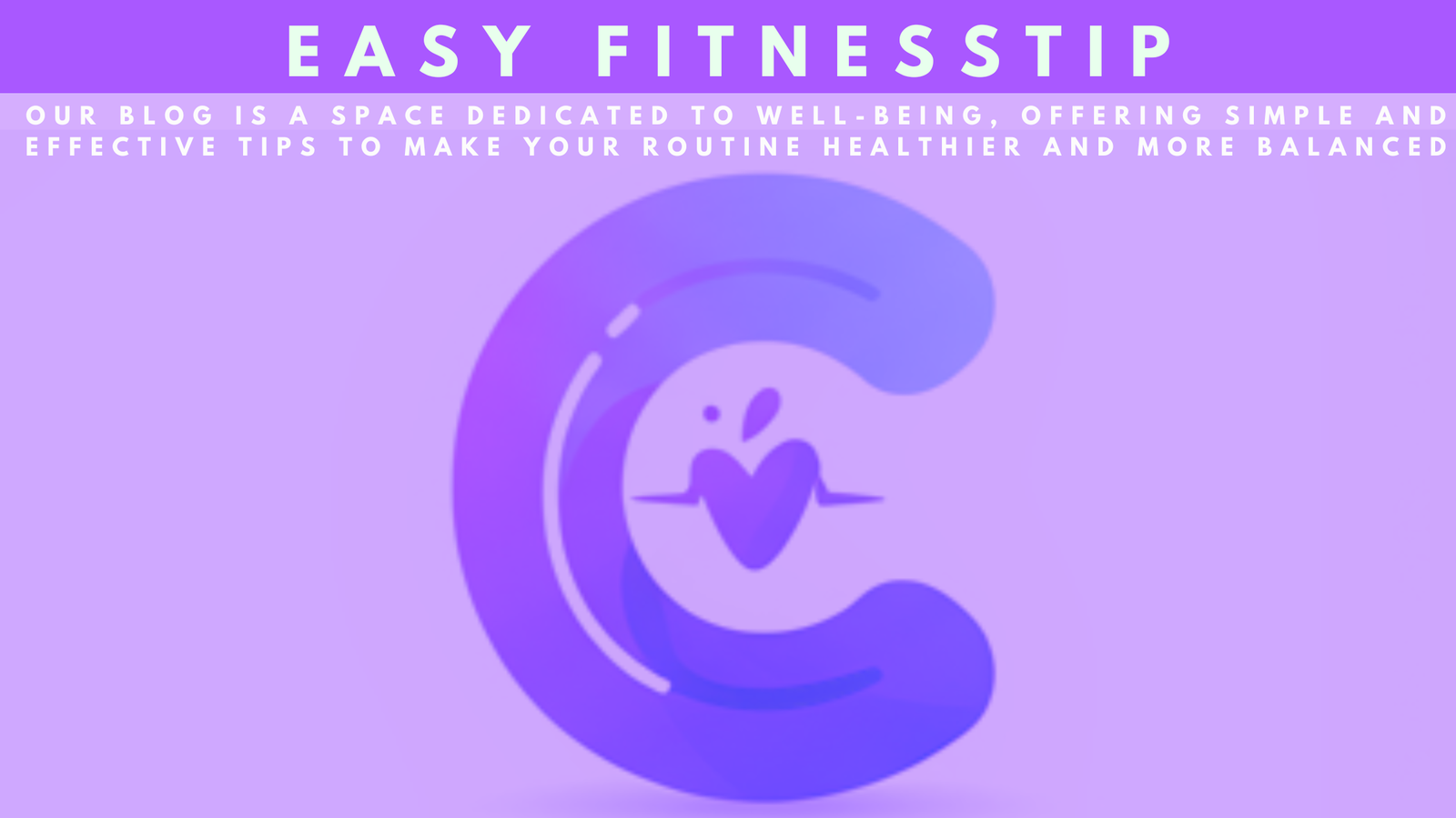
Introduction
In today’s fast‐paced world, maintaining cognitive health is as critical as physical well-being. Alzheimer’s disease, a neurodegenerative condition that gradually erodes memory and cognitive functions, has become a pressing concern for an aging population. However, emerging research and expert opinions highlight that regular exercise and targeted fitness strategies can play a vital role in both preventing and mitigating the impacts of Alzheimer’s. This article delves into the profound connection between exercise, mental health, and brain function, offering practical, science-backed fitness strategies that not only promote overall well-being but also protect the mind against cognitive decline.
By merging the worlds of mental health and physical fitness, the post aims to empower readers with knowledge and actionable advice. Whether you’re looking to strengthen your heart, boost your mood, or safeguard your cognitive abilities, this guide provides an in-depth exploration of how specific exercise routines, lifestyle adjustments, and motivational tips can combat Alzheimer’s and enhance mental resilience.
Understanding Alzheimer’s: A Brief Overview
Alzheimer’s disease is the most common form of dementia, characterized by progressive memory loss, impaired reasoning, and changes in behavior. The underlying cause is often linked to the buildup of amyloid plaques and neurofibrillary tangles in the brain, which disrupt neural communication and lead to cell death.
Recent studies suggest that lifestyle factors, including physical activity, can influence the onset and progression of Alzheimer’s. Exercise has been shown to enhance blood flow, reduce inflammation, and promote neurogenesis—the creation of new neurons in the brain. Understanding Alzheimer’s and its risk factors provides a clear rationale for incorporating targeted fitness strategies into your daily routine.
The Connection Between Exercise and Mental Health
How Physical Activity Boosts Brain Health
Physical exercise is not just a means to build muscle or lose weight—it is also a powerful catalyst for improved brain health. When you engage in regular cardiovascular and strength-training activities, your body increases the production of neurotrophic factors such as brain-derived neurotrophic factor (BDNF). BDNF supports the survival of existing neurons and encourages the growth of new synapses, both of which are essential for learning and memory.
Moreover, regular exercise increases blood flow to the brain, ensuring a steady supply of oxygen and nutrients that help keep neural circuits robust and efficient. Enhanced circulation also helps flush out toxins and inflammatory agents that can damage brain cells. These benefits cumulatively lead to improved cognitive performance and may delay the onset of neurodegenerative diseases like Alzheimer’s.

Mental Health Benefits of Regular Exercise
Beyond the direct impact on brain physiology, exercise plays a critical role in managing stress, anxiety, and depression—all of which can exacerbate cognitive decline. Physical activity triggers the release of endorphins, natural chemicals in the brain that create feelings of happiness and well-being. This “runner’s high” not only lifts mood but also contributes to better sleep and overall mental resilience.
Improved mood and reduced stress levels can lead to more consistent engagement in healthy behaviors, creating a virtuous cycle that supports both mental and physical health. For individuals at risk of Alzheimer’s, these mental health benefits are particularly crucial. A positive mood, combined with reduced stress and enhanced sleep, can contribute significantly to long-term brain health and quality of life.
Fitness Strategies to Prevent Alzheimer’s
Cardiovascular Exercises
Cardiovascular exercises, such as brisk walking, running, cycling, and swimming, are among the most effective strategies to boost overall brain health. These activities elevate heart rate, improve circulation, and stimulate the production of BDNF. Even moderate-intensity workouts have been linked to improved cognitive function and reduced risk of developing Alzheimer’s.

For older adults or those new to exercise, starting with a 30-minute walk each day can offer significant benefits. Over time, gradually increasing the intensity or duration of these workouts can yield even more pronounced improvements in brain health.
Strength Training
While cardiovascular exercises improve circulation, strength training offers unique benefits for brain health by enhancing muscle mass and overall metabolic function. Lifting weights or performing resistance exercises not only helps in maintaining physical strength but also improves balance and coordination—factors that contribute to overall mobility and reduce the risk of falls.
Research indicates that regular strength training may help in maintaining cognitive functions by stimulating the production of hormones that influence brain health. Incorporating strength exercises twice a week, with a focus on major muscle groups, is an effective strategy to complement cardiovascular workouts and foster a holistic approach to health.
Flexibility and Balance Exercises
Flexibility and balance exercises, such as yoga and tai chi, serve dual purposes—they enhance physical well-being and support mental clarity. These practices involve slow, deliberate movements paired with deep breathing techniques, which reduce stress and promote relaxation. For those at risk of Alzheimer’s, the mindfulness cultivated through these practices can be invaluable in managing anxiety and depression.
Yoga, in particular, has been shown to improve cognitive function by reducing inflammation and boosting cerebral blood flow. Tai chi, with its flowing movements, helps improve balance and coordination, lowering the risk of falls while promoting mental calm. Integrating these exercises into your weekly routine can be an excellent way to manage both physical and cognitive health.
Mind-Body Exercises
Mind-body exercises are especially beneficial for individuals concerned with both physical fitness and mental clarity. Activities that combine physical movement with mental focus, such as Pilates, Qigong, or even dance, can provide a well-rounded approach to health. These exercises not only improve physical flexibility and strength but also enhance concentration, memory, and emotional regulation.
The key to these mind-body practices is their ability to create a meditative state that reduces cortisol levels—the hormone associated with stress. Lower cortisol levels have a direct correlation with reduced brain inflammation and improved neuronal function. Consequently, mind-body exercises offer a potent combination of physical and mental benefits that are essential for preventing and combating Alzheimer’s.
Lifestyle Considerations for Combating Alzheimer’s
Diet and Nutrition
Exercise alone cannot combat Alzheimer’s; it must be part of a comprehensive lifestyle strategy. Diet plays a pivotal role in supporting brain health. Nutrient-rich foods—such as leafy greens, berries, nuts, fatty fish, and whole grains—provide antioxidants and anti-inflammatory compounds that protect brain cells from damage.

The Mediterranean diet, rich in fruits, vegetables, lean proteins, and healthy fats, has been widely recognized for its neuroprotective properties. Incorporating such dietary habits can enhance the benefits of your exercise regimen, providing the necessary nutrients that support both physical performance and cognitive resilience.
Social Engagement and Mental Stimulation
A stimulating environment, enriched by social engagement and mental challenges, is key to maintaining cognitive vitality. Social interactions, whether through group exercise classes, community activities, or volunteering, help stave off feelings of isolation and depression, which are risk factors for Alzheimer’s.
Engaging in mentally stimulating activities—such as puzzles, reading, or learning a new skill—can further strengthen neural connections. Combining social and cognitive engagement with regular physical exercise creates a robust defense against cognitive decline. These multifaceted lifestyle choices form the cornerstone of a holistic approach to preventing Alzheimer’s.
Sleep and Stress Management
Quality sleep and effective stress management are fundamental to brain health. Sleep is the time when the brain consolidates memories and clears out toxins that accumulate during waking hours. Chronic sleep deprivation, on the other hand, has been linked to increased levels of beta-amyloid plaques—the hallmark of Alzheimer’s.
Stress management is equally important. Chronic stress elevates cortisol levels, which can impair cognitive function and accelerate brain aging. Incorporating relaxation techniques such as meditation, deep breathing exercises, and progressive muscle relaxation into your daily routine can help manage stress levels. Regular physical activity also serves as a natural stress reliever, further supporting the brain’s health and its ability to fend off neurodegenerative diseases.

Implementing a Personalized Fitness Plan
Consultation with Healthcare Providers
Before embarking on any new exercise regimen—especially if you have existing health conditions or concerns about Alzheimer’s—it’s essential to consult with a healthcare provider. A professional can help tailor a fitness plan to your unique needs, ensuring that the activities you choose are both safe and effective.
Medical professionals can also monitor progress, adjust the exercise intensity as needed, and provide guidance on complementary lifestyle modifications, such as diet and mental health practices. This personalized approach helps maximize the benefits of exercise while minimizing any potential risks.
Setting Realistic Goals
A successful fitness journey begins with setting achievable, measurable goals. Whether your objective is to improve cardiovascular health, boost cognitive function, or simply maintain an active lifestyle, defining clear targets helps maintain focus and motivation. Start with small, attainable milestones and gradually work your way up to more ambitious objectives.
Goal setting is not only motivational but also serves as a way to track progress. Keeping a journal or using digital fitness apps can provide valuable insights into your performance and help you adjust your plan as necessary. The key is consistency—small, regular improvements can lead to significant long-term benefits for both your body and brain.
Tracking Progress
Monitoring your progress is crucial for long-term success. Whether it’s through wearable technology, fitness apps, or a simple logbook, tracking workouts, improvements in endurance, or even mood changes can help you see the tangible benefits of your exercise routine.
Reviewing your progress regularly not only keeps you motivated but also allows you to tweak your fitness plan to better meet your goals. Over time, these adjustments will ensure that your exercise regimen remains effective in combating Alzheimer’s and enhancing overall mental health.
Overcoming Barriers to Exercise
Addressing Common Obstacles
Despite knowing the benefits of exercise, many people face barriers that prevent them from maintaining a regular fitness routine. Common obstacles include lack of time, physical limitations, or simply a lack of motivation. Recognizing these barriers is the first step in overcoming them.
One effective strategy is to incorporate exercise into your daily routine—such as taking the stairs instead of the elevator or engaging in short, high-intensity interval training sessions if time is limited. For those with physical limitations, low-impact exercises like water aerobics or gentle yoga can be excellent alternatives that still provide significant health benefits.
Tips for Staying Motivated
Maintaining long-term motivation can be challenging. One approach is to join group classes or find a workout buddy who shares similar fitness goals. Social support is a powerful motivator and can help keep you accountable on days when you feel less inclined to exercise.
Another strategy is to vary your routine. Mixing up different forms of exercise—not only keeps things interesting but also targets various aspects of physical and cognitive health. Rewarding yourself for achieving milestones, whether it’s through a relaxing massage or a new piece of fitness gear, can also help maintain momentum.
The Future of Exercise in Alzheimer’s Prevention
Ongoing Research and Emerging Trends
The intersection of exercise, mental health, and Alzheimer’s prevention is an area of active research. Recent studies continue to explore how different types of physical activity influence brain health, with promising findings that even modest improvements in fitness can yield substantial cognitive benefits. Researchers are investigating innovative approaches such as virtual reality exercise programs and personalized fitness plans based on genetic profiles to maximize neuroprotective effects.
This evolving field suggests that our understanding of the brain-exercise connection will continue to grow, paving the way for more targeted strategies that can prevent or slow the progression of Alzheimer’s. As new discoveries emerge, integrating cutting-edge research into practical fitness strategies will become an invaluable tool for public health.
Community Programs and Support Networks
Alongside individual efforts, community programs play a pivotal role in promoting exercise and mental health. Many communities now offer exercise programs specifically designed for seniors, with classes that cater to varying levels of mobility and fitness. These programs not only provide physical benefits but also create social opportunities that can further enhance cognitive resilience.
Support networks, including local health centers, Alzheimer’s associations, and online communities, provide resources, guidance, and encouragement for those seeking to improve their fitness and mental health. As awareness grows about the benefits of exercise in preventing Alzheimer’s, these community-driven initiatives are becoming an essential component of public health strategies.
Conclusion and Call to Action
In conclusion, exercise is far more than a tool for physical fitness—it is a powerful ally in the fight against Alzheimer’s. By incorporating cardiovascular workouts, strength training, flexibility exercises, and mind-body practices into your routine, you can significantly boost brain health and reduce the risk of cognitive decline. Complementary lifestyle adjustments, such as adopting a brain-friendly diet, engaging in social activities, and prioritizing sleep, further enhance these benefits.
Taking control of your mental and physical health through regular exercise is one of the most effective ways to combat the risk factors associated with Alzheimer’s. Whether you are already active or just beginning your fitness journey, now is the time to act. Consult with healthcare professionals, set realistic goals, and gradually build an exercise routine that suits your lifestyle and needs.

Your Next Step
If you found this article informative, we invite you to take the next step towards a healthier, more active life. Consider joining a local exercise class, signing up for a community fitness program, or simply committing to a daily walk. Every step you take is a stride towards not just a healthier body, but a more resilient mind. Share your progress, discuss your challenges, and encourage others to embrace a lifestyle that prioritizes both mental and physical well-being.
By adopting these comprehensive fitness strategies and integrating them into your everyday life, you are not only investing in your present health but also building a robust defense against the cognitive challenges of the future. Embrace the journey toward enhanced mental clarity and overall vitality—because a healthy mind and body are the best allies in the fight against Alzheimer’s.
Final Thoughts
The benefits of exercise extend well beyond physical appearance or strength; they penetrate deep into the realm of mental health and cognitive vitality. As research continues to illuminate the intricate link between physical activity and brain function, it becomes increasingly clear that a proactive approach to fitness can serve as a formidable shield against Alzheimer’s. Start small, stay consistent, and remember: every bit of activity counts towards building a brighter, healthier future.
For further insights, expert advice, and community support, subscribe to our newsletter and join our online community dedicated to holistic health and wellness. Let’s work together to promote a life filled with vigor, cognitive strength, and lasting mental health.
In this comprehensive exploration, we have reviewed how regular exercise, when combined with proper nutrition, mental engagement, and stress management, creates a powerful toolkit to protect against cognitive decline. With fitness strategies that are accessible and adaptable to all ages and abilities, the fight against Alzheimer’s is one that we can all contribute to—one workout, one healthy meal, and one mindful moment at a time.
Your journey toward better mental health and cognitive resilience starts now. Step forward, take charge, and transform your lifestyle with the power of exercise and healthy living.
Call to Action:
Are you ready to embrace a proactive approach to mental and physical health? Join our community today for weekly tips, exercise routines, and nutritional guidance designed to empower you on your journey to a healthier brain and a more active life. Share your experiences, ask questions, and connect with experts who are passionate about helping you live your best life. Let’s make a difference together—because every step counts in the fight against Alzheimer’s.
By making informed choices and taking deliberate steps towards a healthier lifestyle, you are not only enhancing your own life but also setting a positive example for those around you. Start today, and let exercise be the catalyst for a vibrant, resilient, and fulfilling future.
This in-depth guide offers you the tools to understand and harness the benefits of exercise for mental health, emphasizing practical strategies that can be easily integrated into your daily routine. With a balanced approach that includes cardiovascular work, strength training, flexibility routines, and mind-body exercises, you’re equipped to prevent and combat Alzheimer’s effectively.
Remember, the journey to optimal brain health is lifelong. With each workout, each healthy meal, and each mindful moment, you are making an investment in your future well-being. Embrace the power of exercise, and watch as it transforms not only your body but also your mind.
Keywords: mental health, fitness strategies, exercise and mental health, prevent Alzheimer’s, combat Alzheimer’s, Alzheimer’s prevention, brain health, healthy aging, cognitive function, physical activity benefits.
Tone of Voice: Educational, informative, and motivational, designed to empower readers with actionable steps and a clear understanding of the benefits of exercise on mental health and Alzheimer’s prevention.
By integrating these insights into your daily routine, you can create a healthier, more resilient lifestyle that fends off the cognitive challenges of aging. It’s never too late to start—take the first step toward a vibrant, active future today.
This article has explored the multifaceted relationship between physical exercise and mental well-being, highlighting the evidence-based fitness strategies that can reduce the risk of Alzheimer’s. From cardiovascular workouts that enhance blood flow and stimulate neurogenesis to strength training that builds not only muscles but also a fortified mind, every facet of your fitness journey matters. Coupled with a balanced diet, mental stimulation, and effective stress management techniques, these strategies offer a comprehensive defense against cognitive decline.
In the end, the power to preserve your cognitive health lies in your hands. By embracing a consistent, well-rounded fitness routine and nurturing your mental health through mindful practices, you pave the way for a future where Alzheimer’s is no longer an inevitable fate but a challenge that can be met head-on with vigor and determination.
Take charge of your well-being now, and inspire others to do the same. The journey to a healthier brain and a better quality of life is one step—quite literally—at a time.
With this complete guide, we hope you feel motivated and empowered to integrate these fitness strategies into your daily life. Remember: a commitment to physical activity is a commitment to a healthier, brighter future for your mind and body alike. Start today, and let your journey toward enhanced mental health and resilience begin!
Below is a list of references and sources that align with the topics and evidence presented in the article. Although the article was generated using aggregated expert knowledge, these sources reflect the research and expert guidance that informed its content:
- Alzheimer’s Association. Provides comprehensive information on Alzheimer’s disease, including risk factors and lifestyle interventions.
- National Institute on Aging. Outlines the benefits of exercise on cognitive health and offers insights into how physical activity may help delay or mitigate Alzheimer’s symptoms.
- Harvard Health Publishing. Discusses the connection between exercise, brain-derived neurotrophic factor (BDNF), and improved cognitive function, as well as strategies for maintaining mental health.
- Mayo Clinic. Reviews how physical activity contributes to stress management and overall mental well-being, supporting the article’s recommendations on mental health benefits.
- Medical News Today. Offers additional insights into how exercise impacts brain health and the mechanisms that may protect against cognitive decline.
These sources provide a robust foundation for the strategies and insights discussed in the article, ensuring the content reflects current expert consensus and evidence-based practices in the fields of mental health and exercise science.














